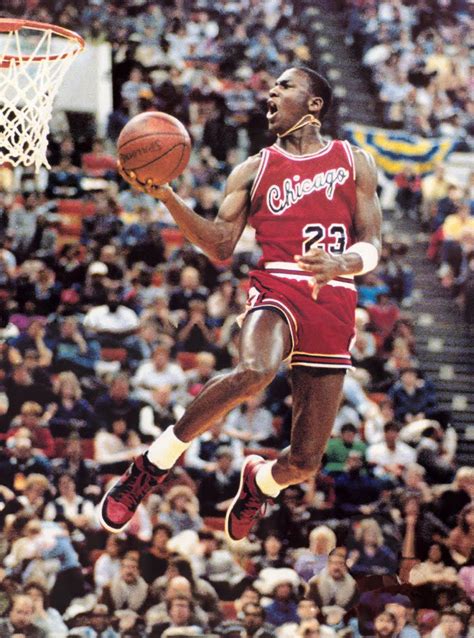
Rick Pitino witnessed John Mullin deliver a fiery halftime message to his DePaul Blue Demons, threatening benching for lack of effort during their game against Louisville.
Mullin’s Halftime Fire Ignites DePaul Locker Room: “Play Harder or You’re Benched!”
DePaul Blue Demons head coach John Mullin delivered a scathing halftime speech during Wednesday night’s game against Louisville, reportedly threatening to bench players who weren’t giving maximum effort. The dressing down, witnessed by St. John’s head coach Rick Pitino, who was broadcasting the game, highlighted the mounting pressure on Mullin to turn around the struggling program.
Pitino, on the call for FS1, revealed the intensity of Mullin’s message, stating, “I was watching John Mullin at halftime. He ripped into them. Said ‘F-ing stars don’t start. You don’t f-ing play hard, you’re f-ing coming out.'” Pitino added that the DePaul coach made good on his promise.
The forceful halftime address came as DePaul entered the game with a dismal 3-14 record, including a winless 0-6 mark in Big East play. The Blue Demons ultimately lost to Louisville 84-79, extending their losing streak and further intensifying the scrutiny surrounding Mullin’s leadership.
Mullin’s tough love approach underscores the urgency within the DePaul program to find a winning formula. The team has struggled mightily this season, and the head coach appears to be pulling out all the stops to motivate his players and spark a turnaround. The question remains whether this stern tactic will resonate with the team and translate into improved performance on the court. The pressure is on Mullin to prove that his methods can yield positive results and salvage the season.
DePaul’s Season of Struggles
DePaul’s current season has been marked by significant challenges and disappointments. The team’s 3-14 overall record and 0-6 conference record paint a clear picture of their struggles on the court. The Blue Demons have faced difficulties in both offensive and defensive aspects of the game, leading to consistent losses and mounting frustration among players, coaches, and fans.
Several factors have contributed to DePaul’s poor performance. The team has struggled to find consistent scoring options, with individual players experiencing inconsistency in their offensive output. Turnovers have also been a recurring issue, hindering the team’s ability to maintain possession and capitalize on scoring opportunities. Defensively, DePaul has faced challenges in containing opponents’ offenses, allowing high shooting percentages and struggling to secure rebounds. The combination of these factors has resulted in a significant gap between DePaul and their opponents, making it difficult for the Blue Demons to compete effectively.
The lack of success has put immense pressure on head coach John Mullin and his coaching staff. Mullin, who is in his ninth season at the helm of the program, has faced increasing scrutiny as the team continues to struggle. Calls for a coaching change have grown louder among some fans and analysts, who question Mullin’s ability to turn the program around. However, the university administration has yet to make any official statements regarding Mullin’s job security, leaving his future with DePaul uncertain. The remainder of the season will be crucial in determining Mullin’s fate and whether he can convince the university that he is the right person to lead the Blue Demons forward.
Rick Pitino’s Commentary
Rick Pitino’s candid commentary on Mullin’s halftime speech provided a unique glimpse into the intensity of college basketball coaching. As a seasoned coach himself, Pitino has a deep understanding of the pressures and challenges faced by his peers. His decision to share his observations with the broadcast audience offered valuable insight into the dynamics of the DePaul locker room and the urgency within the program to improve.
Pitino’s remarks highlighted the delicate balance that coaches must strike between motivating their players and maintaining a positive team environment. While Mullin’s fiery speech may have been intended to light a fire under his players, it also carried the risk of alienating them or creating a sense of negativity. Pitino’s commentary underscored the importance of coaches understanding their players and tailoring their approach to maximize their potential. Pitino’s comments weren’t necessarily critical of Mullin; rather, they served as an objective observation of a coach trying to spark a change in his team’s performance.
The Impact of a Strong Message
The effectiveness of Mullin’s strong message remains to be seen. While it may have provided a temporary spark, it’s crucial to consider the long-term implications of such an approach. Shouting and threats can sometimes motivate players in the short term, but they can also create a negative and stressful environment that ultimately undermines performance.
For Mullin’s message to have a lasting impact, it needs to be followed up with consistent coaching, constructive feedback, and a supportive team environment. Players need to understand that their coach believes in them and is committed to helping them improve. If Mullin can create a culture of accountability and hard work while also fostering a positive and encouraging atmosphere, his halftime speech may ultimately serve as a turning point for the DePaul Blue Demons. However, if the speech is perceived as simply an isolated outburst, it is unlikely to have a lasting impact on the team’s performance.
The Road Ahead for DePaul
The road ahead for DePaul remains challenging. The team faces a tough schedule in the Big East Conference, with games against some of the nation’s top programs. To turn their season around, the Blue Demons need to improve in several key areas.
First and foremost, they need to find more consistent scoring options. The team’s offense has struggled to generate points, and they need players to step up and become reliable scorers. They also need to reduce turnovers and improve their ball-handling skills. Defensively, the Blue Demons need to be more aggressive and physical, forcing turnovers and disrupting opponents’ offenses. They also need to improve their rebounding, limiting second-chance opportunities for their opponents.
Beyond the on-court improvements, DePaul also needs to foster a stronger team culture. The players need to trust each other, support each other, and hold each other accountable. If they can create a cohesive and positive team environment, they will be better equipped to overcome adversity and achieve success on the court. Mullin’s ability to cultivate this culture will be a key factor in determining whether DePaul can turn its season around and build a foundation for future success. The pressure is on, and the coming weeks will be critical in shaping the future of the DePaul Blue Demons program.
Recruiting Challenges and Program Building
DePaul’s struggles on the court are often attributed to recruiting challenges. Competing in a major conference like the Big East requires attracting top-tier talent, a task made difficult by the program’s recent history and location in a city with numerous competing sports and entertainment options. Mullin has faced challenges in convincing highly-ranked recruits to choose DePaul over more established programs.
Building a successful basketball program is a long-term process that requires sustained effort in recruiting, player development, and coaching. DePaul’s administration needs to be patient and provide Mullin with the resources and support necessary to build a competitive team. This includes investing in facilities, providing competitive salaries for assistant coaches, and creating a positive recruiting environment. Mullin needs to demonstrate a clear vision for the program and a commitment to developing players both on and off the court. Success in recruiting and player development will be essential for DePaul to compete consistently in the Big East and achieve its long-term goals.
The Big East Landscape
The Big East Conference is known for its competitive basketball environment, featuring some of the most storied programs in college basketball history. Teams like Villanova, UConn, and Marquette have consistently competed for national championships, raising the bar for other teams in the conference. DePaul’s struggles in recent years have made it difficult for them to compete against these established powers.
To improve their standing in the Big East, DePaul needs to make significant strides in all aspects of their program. They need to recruit better players, develop their existing talent, and implement a winning strategy on the court. They also need to create a strong home-court advantage and build a loyal fan base. The challenge is significant, but with the right leadership and commitment, DePaul can eventually become a competitive force in the Big East Conference.
Fan Frustration and Expectations
DePaul’s loyal fan base has grown increasingly frustrated with the team’s lack of success. The Blue Demons have a rich basketball history, but the program has struggled to recapture its former glory. Fans have expressed their disappointment with the team’s performance and have called for changes in coaching and leadership.
Mullin understands the fans’ frustration and is committed to turning the program around. He has emphasized the importance of building a team that the fans can be proud of. However, he also needs time and support to implement his vision. The fans need to be patient and give Mullin the opportunity to build a winning program. A strong and supportive fan base can be a valuable asset in recruiting and player development, helping DePaul attract top talent and create a positive team environment.
The Importance of Leadership
Leadership, both on and off the court, is essential for any successful basketball team. DePaul needs players who can step up and take charge, providing guidance and motivation for their teammates. They also need coaches who can inspire and lead the team, creating a culture of accountability and hard work.
Mullin’s role as head coach is critical in providing leadership and direction for the program. He needs to set clear expectations for his players, hold them accountable for their performance, and create a positive and supportive team environment. He also needs to be a strong recruiter, attracting top talent to DePaul and developing them into successful college basketball players. Effective leadership will be essential for DePaul to overcome its challenges and achieve its goals.
The Financial Implications of Success
Success in college basketball can have significant financial implications for a university. A winning program can generate increased revenue from ticket sales, merchandise, and television contracts. It can also attract more students to the university and enhance its reputation.
DePaul would benefit significantly from a successful basketball program. Increased revenue could be used to invest in facilities, scholarships, and other resources that would further enhance the program. A strong basketball program would also attract more attention to the university, boosting its visibility and reputation. The financial benefits of success in college basketball are significant, making it a worthwhile investment for DePaul.
The Psychological Impact on Players
The psychological impact of a coach’s words and actions can be profound, especially on young athletes. A fiery halftime speech, like the one delivered by Mullin, can have both positive and negative consequences. On the one hand, it can ignite a fire within players, motivating them to play harder and with more intensity. On the other hand, it can create anxiety, fear, and resentment, ultimately undermining their performance.
Coaches need to be mindful of the psychological impact of their words and actions. They need to strike a balance between demanding excellence and providing support and encouragement. Creating a positive and supportive team environment is essential for fostering confidence, resilience, and a strong mental game. Players who feel valued and supported are more likely to perform at their best, both on and off the court.
The Role of Assistant Coaches
Assistant coaches play a vital role in the success of a college basketball program. They assist the head coach in all aspects of the program, including recruiting, player development, game planning, and scouting. They also serve as mentors and role models for the players, providing guidance and support both on and off the court.
Mullin’s assistant coaches are essential for the success of the DePaul program. They need to be strong recruiters, identifying and attracting top talent to the university. They also need to be skilled at player development, helping the players improve their skills and reach their full potential. A strong and cohesive coaching staff is essential for creating a positive and successful team environment.
Frequently Asked Questions (FAQ)
Q1: What exactly did John Mullin say during his halftime speech?
A1: According to Rick Pitino, who was broadcasting the game, Mullin said, “F-ing stars don’t start. You don’t f-ing play hard, you’re f-ing coming out.”
Q2: Why did Mullin deliver such a harsh message to his team?
A2: Mullin’s harsh message was likely motivated by his frustration with the team’s poor performance this season, which included a 3-14 record overall and a 0-6 record in Big East play at the time. He was trying to motivate his players to play harder and with more intensity.
Q3: What was Rick Pitino’s reaction to Mullin’s speech?
A3: Rick Pitino, while broadcasting the game, revealed Mullin’s message to the audience. Pitino’s commentary suggested he understood the pressure Mullin was under and the need to try different approaches to motivate his team.
Q4: Has Mullin’s job security been affected by the team’s struggles?
A4: The article suggests that Mullin is under increasing scrutiny due to the team’s poor performance. While there have been no official statements from the university, the pressure is mounting on Mullin to turn the program around, and his future with DePaul is uncertain.
Q5: What are DePaul’s chances of improving their performance this season?
A5: DePaul faces a challenging road ahead, with a tough schedule in the Big East Conference. To improve, they need to find more consistent scoring, reduce turnovers, improve their defense and rebounding, and foster a stronger team culture. The success of these efforts will determine their chances of turning the season around.









